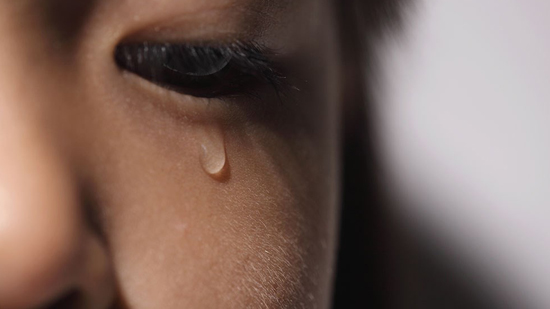An uncomfortable truth lingers in the wake of the recent suspension of the baby hatch program in Guangzhou,namely that the 262 children who were abandoned in the six weeks before its close who all suffer some sort of illness, disease or birth defect are the luckier ones.
随着近期广州婴儿岛的停运,一个让人难以接受的事实在人们心头挥之不去,在婴儿岛关闭之前,有262名儿童遭到遗弃,这些儿童都受到了先天性畸形、疾病等困扰。

They are lucky, firstly, to be in an orphanage, in a country where orphanages are stretched for resources or do not exist in many regions at all. Being in one, the children may have the opportunity to be adopted by domestic Chinese citizens or foreigners. However, this will likely be a long wait. Strict requirements for prospective adopters of Chinese children include proof of marriage for at least two years and that thecouple show they aren't overweight.
首先,他们是幸运的,他们生活在孤儿院中,孤儿院利用资源,所以它在许多地区并不常见。生活在这里的儿童很有可能会得到国内市民,或是外国人的收养。但是,等待的时间可能会很长。国家对收养中国儿童的收养人有着严格的要求,包括结婚2年以上,夫妻不能超重等。
The focus, moreover, is on adopting healthy children, who are becoming the minority in China's orphanages as the One-Child policy is relaxed. While the waiting list for special-needs children is much shorter, it is often a longer, more costly process of selection and screening before a suitable family is found – assuming the adoption program is ethical.
此外,重点是收养健康儿童,随着计划生育政策的放宽,人们很难在孤儿院中找到健康儿童。然而,人们对收养需要特殊照料儿童的等待却很短,在找到合适家庭之前,人们需要进行一番费时,费钱的选择工作,并能够证明收养是符合道德的。
A lack of a unified welfare system means that China's system for helping the sick and disabled, which relies on a combination of NGOs is piecemeal at best and, as China's orphanages fill up with predominantly sick and disabled children, gaining access and support for their medical needs becomes an increasingly dire issue. It is often the prohibitive cost of medical care that led many struggling parents to leave their child in the first place, harboring the desperate hope their children would live a little longer under the care of the orphanage rather than face the certainty of death at home.
由于缺乏统一的福利体系,这就意味着帮助那些伤残儿童的重担就落在了非营利组织的肩上,中国孤儿院中有大量伤残儿童,为他们寻求医疗求助也就愈加成为了一大棘手问题。通常都是一些防护性的医疗经费就已经让父母将他们抛弃,儿童希望能够在孤儿院多留一段时间,而不是回到家等待死亡。
If they are very lucky, the disabled orphans may be admitted into the schoolyard, most likely into a special education school, as ordinary schools often prove inadequate to accommodate students' needs or shut their gates completely. Already, they would have beat the 40 percent of disabled Chinese who are illiterate and the 28 percent of disabled school aged children denied access to any education, according to a 2013 Report from the China Disabled Person's Federation. On graduation, they may have access to a handful of career paths, most commonly massage or music, and hope for the small chance that they will find employment. Even government departments only have, at best, 0.39 percent of their workforce comprised of employees with disabilities, according to the Beijing Yirenping Center.
如果他们非常幸运的话,那些残疾儿童将很有可能进入校园,之后进入一所特殊教育学校,这是因为许多正常生学校都会认为自己不能给学生提供特殊的照顾,并把他们完全拒之门外。中国有40%的残疾人是文盲,有28%的上学年龄儿童没有得到任何教育,这是中国残疾人联合会在2013年发布的报告。毕业之后,他们有可能接触到更多的工作,较为常见的有按摩,音乐,他们还会希望找到工作。政府部门也最多拥有过0.39%的残疾人比例,这是北京益仁平中心的报告。
There is no telling what future awaits the children who now call Guangzhou Social Welfare Institute home, except that they will likely continue to face an uphill battle for the rest of their lives.
没有人知道这些在广州福利院的孩子们将来的命运会怎样,他们将来很有可能面临着重重阻碍。
For Caixin Online, this is Christina Guo
这是克里斯蒂娜·曹为您带来的财新网报道。
译文属可可英语原创,未经允许,不得转载。












